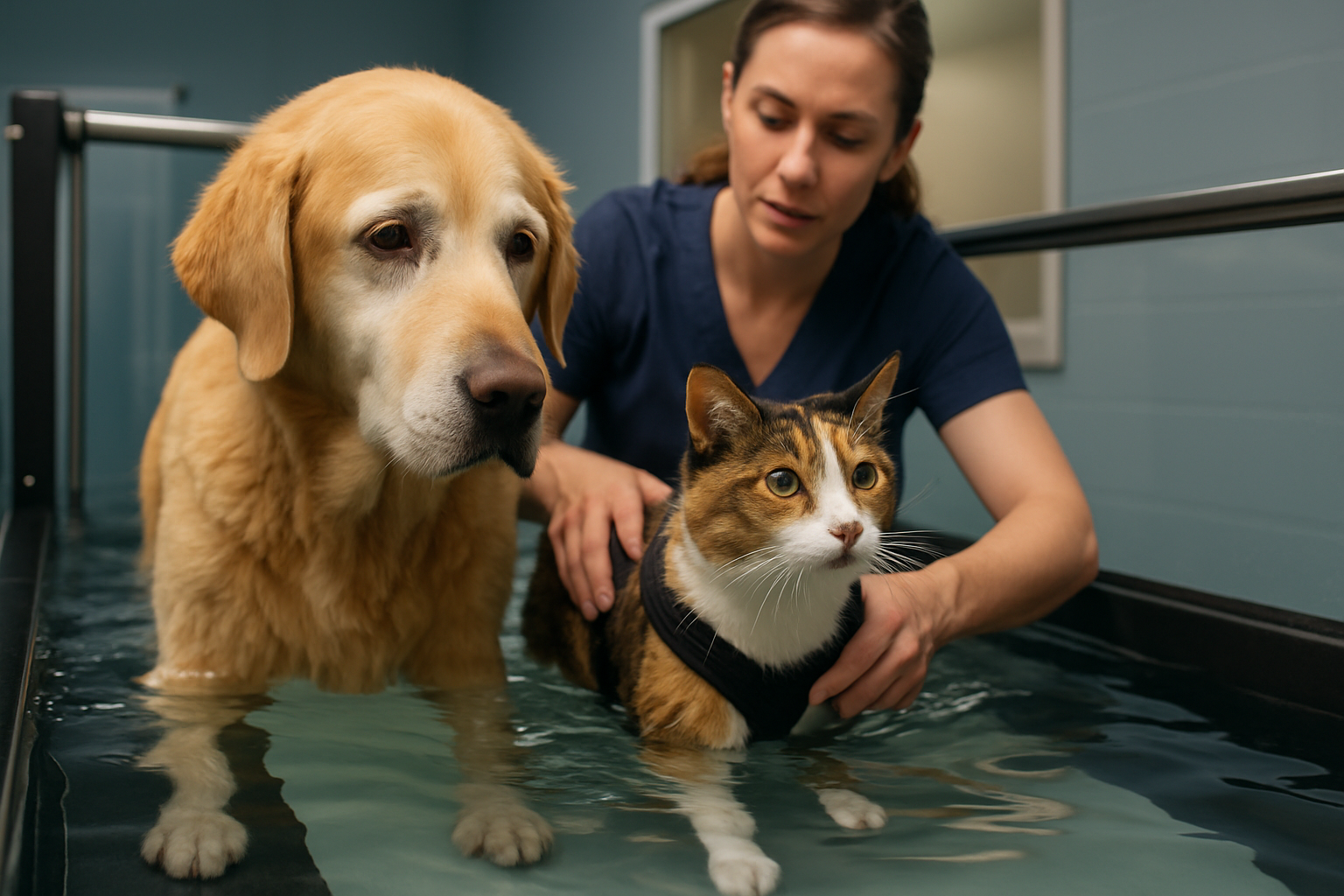Seasonal Care Adjustments for Temperature and Activity Shifts
Seasonal changes in temperature and activity levels affect pets in practical ways, from energy use to coat condition. Adjusting feeding, exercise, grooming, and travel plans helps maintain comfort and health. This article outlines clear seasonal care adjustments—covering nutrition, wellness checks, training patterns, and senior care considerations—to support pets year-round.

Pets experience shifts in temperature and activity as seasons change, and thoughtful adjustments can reduce stress and health risks. Warmer months often increase outdoor time and activity levels, while colder weather can reduce movement and change dietary needs. This article examines practical seasonal care adjustments across nutrition, grooming, training, behavior, vaccination and travel planning, with attention to seniorcare and enrichment needs for a range of animals.
This article is for informational purposes only and should not be considered medical advice. Please consult a qualified healthcare professional for personalized guidance and treatment.
How does nutrition change with seasons?
Seasonal activity and temperature fluctuations influence caloric needs and hydration. In summer, active pets spending more time outdoors may require higher water intake and slightly increased calories to match activity; however, avoid overfeeding as heat can suppress appetite. In winter, some animals burn more energy to stay warm and may need modest calorie increases or richer fats, while others become less active and require portion adjustments to prevent weight gain. Keep consistent monitoring of body condition, consult your veterinarian for tailored feeding plans, and ensure fresh water is always available to maintain wellness.
What grooming and dentistry adjustments help each season?
Grooming frequency often changes with seasonal coat shedding and humidity. Regular brushing during spring and fall reduces loose hair and skin irritation, while occasional trims in hot weather can improve comfort without removing protective undercoats that insulate in winter. Skin and ear checks are important after wet outdoor activity to prevent infections. Dentistry ties into seasonal care because travel and boarding can disrupt routines; keep up with routine teeth cleaning and checkups to prevent periodontal issues that affect overall health. Schedule grooming and dental appointments with local services in your area for consistent care.
How should training, leashtraining and socialization adapt?
Training schedules benefit from seasonal adjustments to daylight and weather. Shorter daylight in winter may limit outdoor sessions; move training indoors using enrichment toys and short, frequent sessions to maintain progress. Leashtraining continues to rely on consistency—practice in different weather to generalize behaviors. Summer evenings can be prime time for socialization when temperatures are cooler; monitor for heat stress. When introducing new social situations, prioritize calm, controlled exposure and pair with rewards to reinforce positive behavior and reduce anxiety.
What behavior and enrichment changes are useful?
Behavior shifts can result from seasonal routine changes—more indoor time may increase boredom-related behaviors while outdoor-heavy seasons can lead to overstimulation. Provide enrichment that fits the season: puzzle feeders, scent games, and short indoor obstacle courses for colder months; supervised water play, shaded rest areas, and cooling mats in summer. Observe for stress signals such as changes in appetite, excessive vocalization, or toileting changes, and adjust enrichment and routine to maintain mental wellness and prevent behavior problems.
How do vaccination, microchip, travel and boarding planning vary?
Seasonal travel and boarding demand updated paperwork and preventive measures. Ensure vaccinations are current before boarding or travel and confirm microchip information is up to date for quick reunification if needed. Summer travel often means increased vector exposure—discuss flea, tick, and heartworm prevention with your vet. During peak holiday seasons, book boarding or pet-sitting services in your area well in advance and review their vaccination and emergency protocols to protect your pet’s health while you’re away.
What adjustments support seniorcare and exercise for ageing pets?
Senior pets often need tailored seasonal care: arthritis can worsen in cold, damp weather, so provide warm bedding, gentle indoor exercise, and short, frequent walks when temperatures are moderate. In hot weather, reduce high-impact activity, schedule exercise for cooler parts of the day, and watch for overheating. Regular wellness checks, weight monitoring, and adjustments in nutrition and supplements (when recommended by a veterinarian) help manage chronic conditions. Dentistry and routine exams gain importance with age, as dental disease and other issues can affect appetite, behavior, and overall quality of life.
Conclusion
Seasonal care adjustments across nutrition, grooming, training, behavior, vaccination, microchip records, travel planning, boarding choices, and seniorcare help pets remain healthy and comfortable through temperature and activity shifts. Observing your pet’s condition, maintaining consistent preventive care with local services, and adapting routines to weather and activity levels will support long-term wellness and enrichment without dramatic changes to everyday life.






